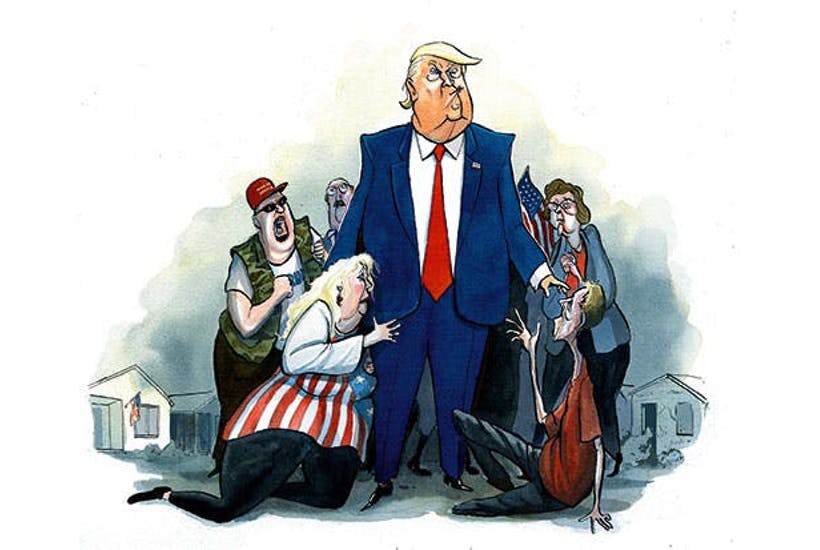Jon Sopel, the BBC’s North America editor, has given us a pithy and perceptive account of today’s USA in his book If Only They Didn’t Speak English. He described the mood there in 2016 as ‘fearful, angry and impatient for change’. It was the year when Donald Trump was going to be elected to the world’s most powerful position. Could something similar also explain the unpredicted swings in European elections and across the world? If so, does it mean that people are so fed up with the status quo that they will opt for anything contrary? The oft-quoted aphorism from G.K. Chesterton comes to mind: ‘When men choose not to believe in God, they do not thereafter believe in nothing, they then become capable of believing in anything.’
An instinctive yearning for something different isn’t necessarily bad. It is what has driven explorers, inventors and researchers from earliest times to discover and develop every improvement we now enjoy. While I would hesitate to claim impatience as a virtue, my heart is lifted when I see young people knocking hard at the door of opportunity because they are thinking positively. Belly-aching is something else. Malcontents can be wooed by any political Pied Piper who promises to deliver a non-existent utopia. I am reminded of William Penn’s warning that we must be governed by God or we will be ruled by tyrants. Penn was the English Quaker who founded Pennsylvania.
This is an extract from John Sentamu’s Notebook, which appears in the Christmas issue of The Spectator






Comments